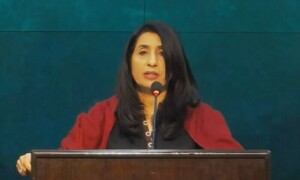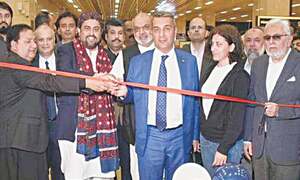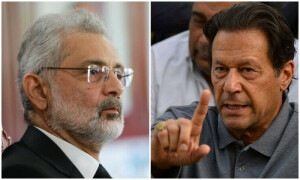KARACHI, Sept 14: “The mood of corporate Pakistan is changing, from one of wide-eyed optimism two months ago to disappointment on slow pace of reforms", wrote Farrukh Khan at KASB Securities Limited in a report release earlier this week.
He said that the conclusion was drawn after a meeting with a dozen companies, regulators and businessmen in Pakistan on a client trip.
The key takeaway was that the optimism on political reform was waning, in sharp contrast to the feel good factor that was encountered two months ago.
The biggest concern for the industry was the law and order situation in Karachi, being seen as a litmus test for the government’s success and unlocking investment and growth.
Some people also voiced concern on recurrence of circular debt, and that the one-off injection of Rs503 billion in June that had not resolved the perennial problem, from its recurrence. The IMF approval, whilst welcome, was already priced in (the stock values) by the market.
The cement sector pricing arrangement remained a concern; as capacity expansion plans in the south by northern players were disturbing industry equilibrium.
Another analyst affirmed that the relationship among cement producers had soured, after the biggest player in the industry, Lucky Cement opted out of the cement producers’ lobby, the All Pakistan Cement Producers' Association and the Lucky's close competitor D.G. Khan announced its intention to go ahead with its expansion plans by setting up another plant in Hub.
Farrukh Khan stated that the view being formed was that the scale of the issues seemed to have taken the PML-N government by surprise. “As a result of the faltering optimism, we heard much less on tangible investment plans, unlike two months back, when it seemed that many companies were gearing up for the next investment cycle,” said the analyst.
However, most people who responded to queries continue to believe that the PML-N government remains in a strong position to implement effective reforms, given their simple majority in parliament.
And many were willing to give space to the government.
“Lofty expectations of policy success from the government within the first three months of coming into power were always likely to meet with disappointment, as ground realities require a more measured and painstaking approach to reforms,” they said.
All of that suggested that the stock market’s re-rating cycle had run its course for now, as optimism on political change was one of the key sentiment drivers for the market’s post-election rally.
Prior to the elections, the Karachi stock market traded at a 2013 estimated price-to-earnings (P/E) of 7.1 times. With the giant leap in post-election rally the p/e rose to 9 times. “As investors realize that reforms pertaining to law and order and circular debt will take longer than expected to resolve, and macro concerns have not gone away despite approval of the IMF loan, the market is unlikely to re-rate further in the short to medium term,” the analyst thought.
Most market believed that the impact of the unexpected tightening of monetary policy announced by SBP on Friday, would have to be worked out on the balance sheets of companies. The corporate Pakistan, given to witness the consistent softening in SBP Monetary Policy since November 2010, when the policy rates stood at the lofty height of 14 per cent and had gradually stepped down to 12 per cent until June 2012 and to 9 per cent in June 2013, the latest reversal was expected to pinch.
Several analysts’ still in a dark mood on Saturday thought that the KSE-100 index could slip by 2-4 per cent next week, the highly leveraged companies in the textile and cement sector, perhaps taking the hardest beating. “The concern is grounded in the fact that the market had rallied by 1000 points, when IMF was thought not to have insisted on an immediate hike in interest rates,” said a fund manager.

















































Dear visitor, the comments section is undergoing an overhaul and will return soon.